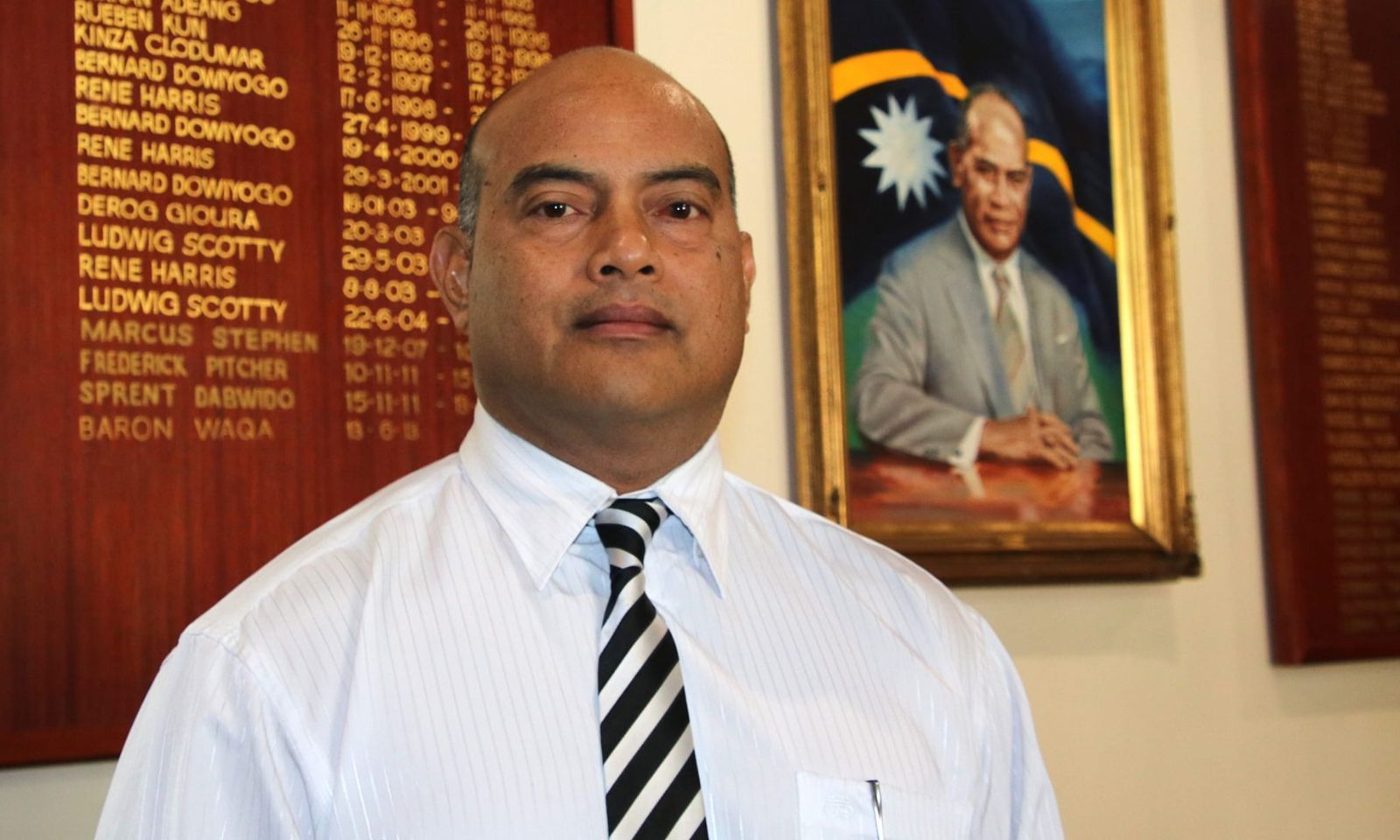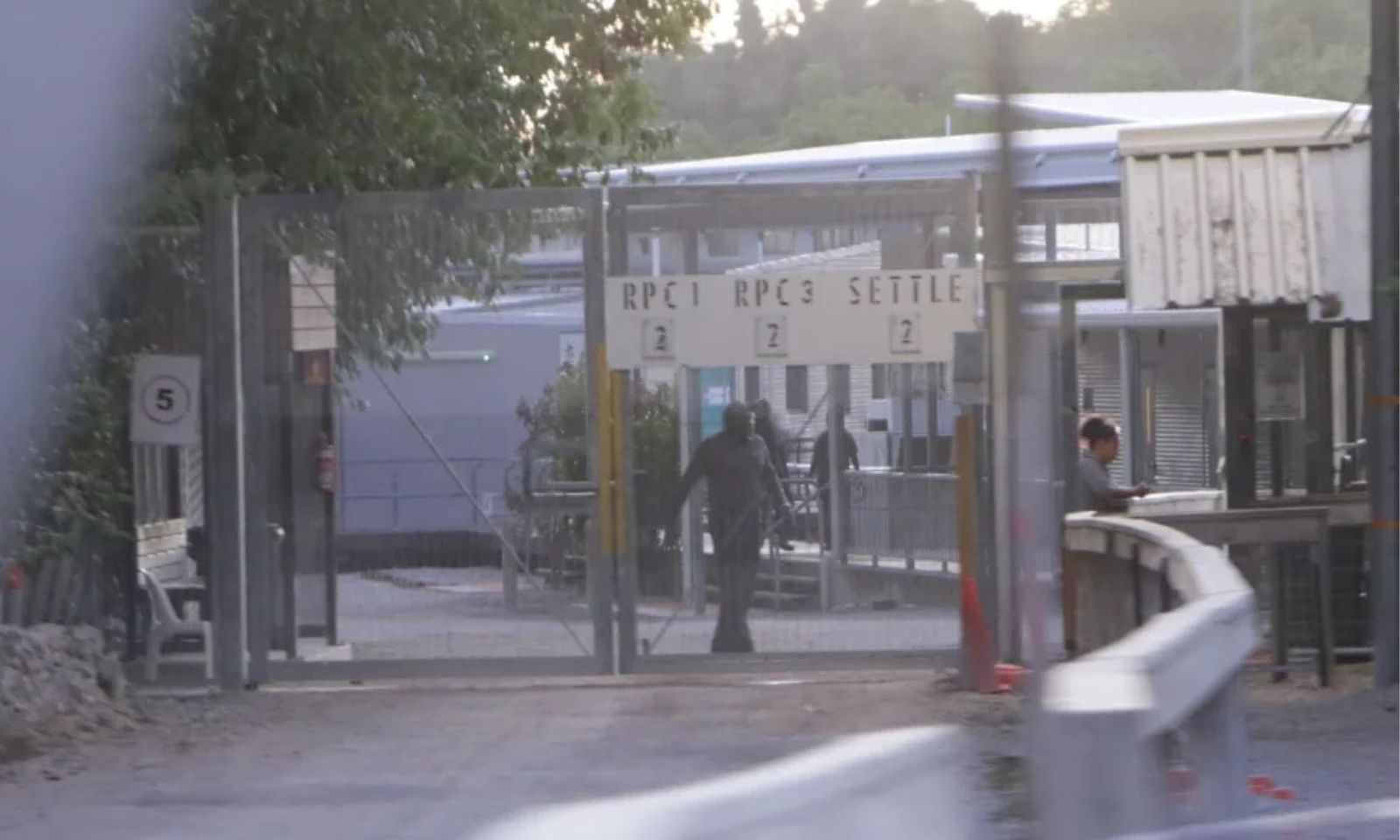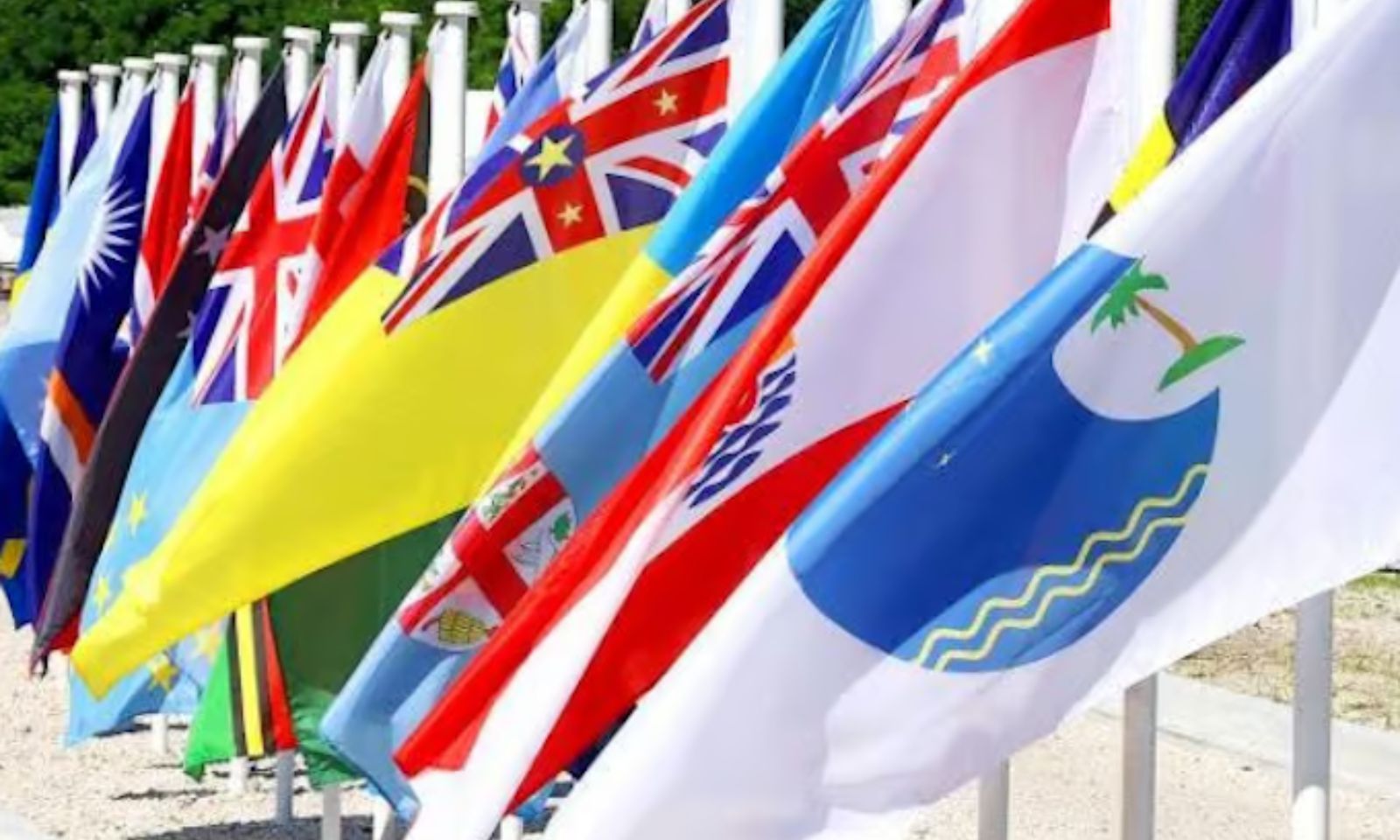

Nauru’s President David Adeang met senior Australian ministers in Canberra during an unannounced visit last week.
Photo/Commonwealth Scientific and Industrial Research Organisation/Nick Pitsas/File
Secretive visit by Nauru leader raises questions over Australia's Pacific deal - media reports
David Adeang met senior ministers in an unannounced visit to Canberra, sparking an inquiry about transparency and the Pacific nation’s role in Australia’s detention policy.


Moana Pasifika end Lautoka curse to win 'Battle of the Pacific'


A.R.T sets new Pacific music pace with ‘First Thursday’ releases


Moana Pasifika end Lautoka curse to win 'Battle of the Pacific'


A.R.T sets new Pacific music pace with ‘First Thursday’ releases
Nauru’s president, David Adeang, has made an unannounced visit to Canberra, meeting senior members of the Albanese government as Australia resumes sending immigration detainees back to the Pacific island nation.
Adeang met Home Affairs Minister Tony Burke and Foreign Affairs Minister Penny Wong during his short stay in the Australian capital last week. Both ministers later described the meetings as “productive”, saying the relationship between the two countries remains strong.
But the visit has raised eyebrows across the Pacific and in Australia because it was not made public until journalists spotted Adeang and his delegation entering Parliament House.
The secrecy comes at a sensitive time, as Australia continues to transfer people from the so-called NZYQ group to Nauru under an AU$2.5 billion (NZ$2.89b), 30-year deal.
The latest deportation involved a man from South Sudan, who joined three others already on Nauru. Members of the NZYQ cohort include people who cannot be deported to their home countries because they are refugees or stateless, as well as some with minor or past convictions.
The Nauru NZYQ cohort refers to a group of individuals, many of whom were convicted of serious crimes, who were released from Australian immigration detention following a 2023 High Court ruling that indefinite detention was unlawful.

Nauru’s President David Adeang, who made a quiet visit to Canberra to meet the Albanese government. Photo/Facebook/Nauru government
Australia has struck a deal with Nauru to resettle these individuals, which involves sending them to the Pacific nation and paying Nauru a substantial amount over 30 years to support the resettlement.
Australian media, including The Guardian and ABC News, have also reported claims that a bikie gang has links to a labour-hire company providing staff at Nauru’s detention centre.
The Greens’ Senator David Shoebridge has called for the allegations to be referred to the National Anti-Corruption Commission.

A Nauru detention centre: Australia continues to transfer immigration detainees to the island under a $2.5 billion agreement. Photo/RNZ Pacific/Caleb Fotheringham
The reports have drawn renewed criticism from Pacific commentators, who say such deals, often done quietly between Canberra and small island governments, risk undermining public trust.
“This kind of secrecy makes people across the region uneasy,” one Pacific policy analyst based in Suva says. “When decisions affect our islands, there should be open discussion, not back-room arrangements.”
Opposition politicians in Australia have also questioned the handling of the visit. Shadow Home Affairs Minister Jonathon Duniam says it was “bizarre” for a head of state from one of Australia’s closest neighbours to visit without public notice or proper diplomatic protocol.
The ABC’s foreign affairs reporter, Stephen Dziedzic, says details of Adeang’s talks remain unclear. “This is what they’re calling a private visit, but we still don’t know what was discussed."
Nauru, which has hosted Australia’s offshore detention centre for more than a decade, remains a key partner in the region. But its relationship with Canberra is often politically sensitive.
The Australian government says cooperation with Nauru is essential for regional security and migration management. However, Pacific observers argue that transparency and fairness must be part of that partnership.
As one regional leader put it: “Pacific relationships work best when they’re based on respect and openness. That’s what our people expect.”
Adeang's visit came ahead of media reports this week revealing Australia’s Pacific aid programme coming under scrutiny after audit reports showed gaps in oversight and missing documentation.
The concern is that some funds may have been paid without clear proof that the services were actually delivered.
A key example is the Department of Foreign Affairs and Trade’s (DFAT) Pacific Covid-19 Fiscal Budget Support (FBS) package, which provided AU$498 million (NZ$576.17m) to 12 Pacific island countries, including Nauru and the Solomon Islands, between 2020 and 2023.

Flags of member countries of the Pacific Islands Forum. Photo/PIFS
Since the reintroduction of offshore processing in 2013, Australia has sent 4183 people to Nauru, according to the Refugee Council of Australia.
Between May 2022 and December 2024, the Labor government transferred 136 people to Nauru. As of November 2025, around 100 people remain detained on the island.
The Human Rights Law Centre reports that 14 people died in offshore detention in Nauru and Papua New Guinea (or after transfer from them) since 2012.